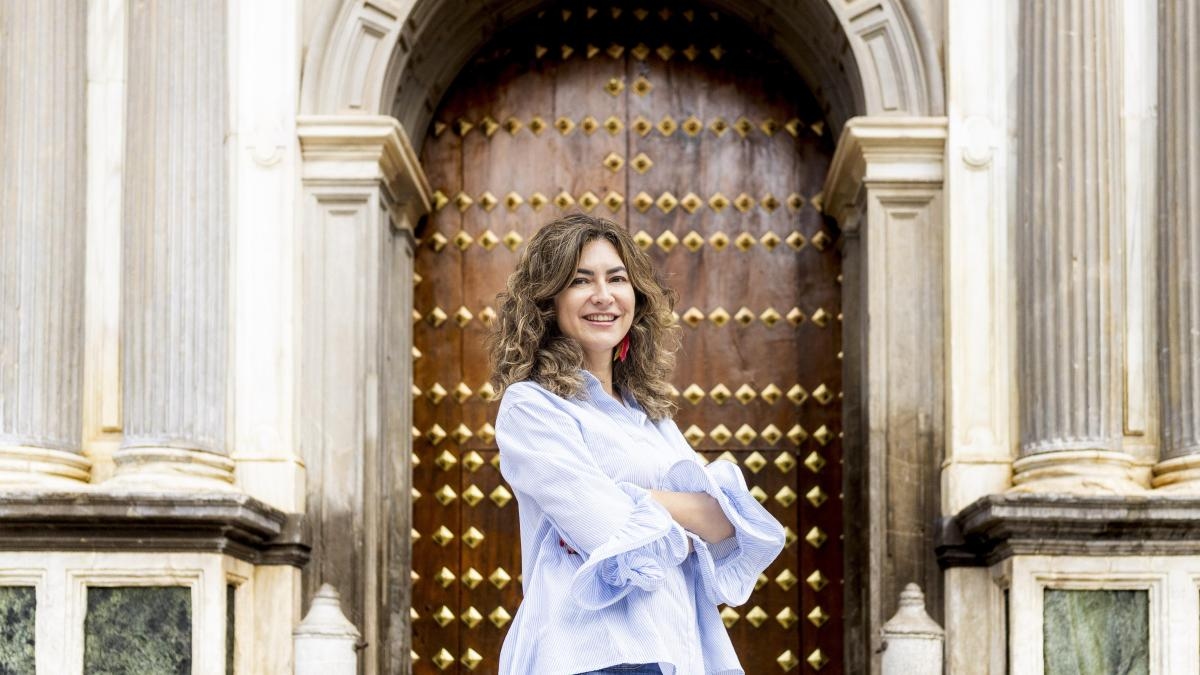Santiago Posteguillo: "Caesar used to go into battle, but now wars are decided in offices."

“This is my biggest literary project. I think I've only been warming up until now. Now I'm really getting serious,” Santiago Posteguillo (Valencia, 1967) told La Vanguardia in 2021, after announcing his return to Ediciones B, the publisher with which he had previously published the Scipio Africanus trilogy. The news caused a stir at the time, as he had just won the Planeta Prize in 2018, the award that Juan Del Val took home this week. Publishing moves aside, many wondered what this ambitious next step could be, given that his career was already on a roll. The answer was Caesar. Julius Caesar and the Roman Empire, but told in a different way.
“A faithful history, yes, but also an adventure novel that, beyond the action, allows us to learn about the personal lives of the protagonists. I like to focus on things that historians don't dedicate more than two lines to,” explains the writer as he watches the cars advance during rush hour across the Roman bridge in Trier, Germany, the Römerbrücke, which crosses the Moselle River. More than one person will wonder what he's doing there and why he's accompanied by a group of journalists. He has traveled to present the novel The Three Worlds (Ediciones B/Rosa dels Vents), the third installment in that landmark series he announced during the pandemic. A book that places him right in the middle of the project, as he intends to write six volumes. The first three, already published, make up the trilogy of the rise; and the next three, for which he already has the respective plots in mind, he announces that he wants to title them "The Trilogy of Absolute Power."
“After the Dana, I wrote fourteen pages in one go that talked about a flood.”“Before we even started, the editors freaked out. Those who know me will know I'm a bit crazy, but I can't skip parts. What do I do? Do I stop talking about Cleopatra? The parallel characters are all very powerful too. My idea was for the first book, Roma soy yo , to talk about youth. The second, Maldita Roma , to talk about political rise. Now it's the turn of another rise, the military one.” And with that clue, more than one reader will try to connect the dots about the reason for the trip to Germany: the conquest of Gaul, which occupies this new book. “The Gaul of Caesar's time goes far beyond what we usually identify as present-day France. It was that and many other territories, including this one.”

Santiago Posteguillo at the Trier amphitheater
Miquel OlivéAnyone who has the opportunity to visit Trier (German: Trier) will soon discover that quite a few vestiges of the Empire are still preserved today. According to the UNESCO report: "There is no place north of the Alps where so many important Roman buildings are preserved as in Trier, the Rome of the North." In addition to the aforementioned bridge, another landmark that this city, founded around 16 BC as Augusta Treverorum , has turned into a hallmark is the Porta Nigra, the gate in the walls, which has become one of its main tourist attractions. There, the writer begins a route that will also pass by the Imperial Baths and those of Saint Barbara, which are preserved in a fairly excellent state, having been restored and refurbished. "Caesar brings the Roman world to the borders of the Rhine."
“Caesar's Gaul goes far beyond what we usually identify as present-day France.”No less impressive is the amphitheater. "It's one of the few that preserves the hypogeum, the underground chambers where everything that went on stage was organized," celebrates Posteguillo, who had already admired the circus months earlier, when he was researching it. From there, he talks about combat and draws parallels with the present day, such as the importance of logistics, although "that today would be translated as fuel supplies, while in Caesar's time, the most important thing was for the legionaries to eat, since if they weren't well-fed, they couldn't fight, build bridges, or do anything at all."

Remains of the Roman Empire in Trier
The VanguardAnother clear difference he perceives is the position of the military leader. “Caesar used to be on the front lines, but now wars are decided in offices, and it's easier to sacrifice people. If, on the other hand, you're on the battlefield, you don't want to see your comrades die. That's why Caesar helped, for example, the Remi, a Belgian tribe with whom he allied himself following a divide-and-conquer strategy. If he hadn't been there, he probably wouldn't have joined them, nor would he have helped them when they attacked one of his cities, Bibrax. Caesar doesn't give up. Today's politicians often do.”
“Caesar fought on the front lines, but today they wage war from the offices.”This last sentence was most likely recalled by the author just a year ago, during the floods of the Dana in Valencia, from which he was affected. At the time, he was finishing the manuscript, and without wishing to give away any spoilers , this is reflected in some sections of the book that also deal with floods. "I wrote fourteen pages in one go. It's further proof that authors write from their own life experiences, no matter how much one dedicates oneself to historical novels," he concludes.
A cameo of Asterix and ObelixAs soon as the reader delves into Santiago Posteguillo's new novel, they will discover, within a few chapters, what he means by Caesar's three worlds. "The first is Gaul and the struggle against the Gauls, which occupies this novel. The next is that other world Caesar has in his head: Rome and the enemies who await him there. And the last is Egypt, that always exotic and legendary country that is less remote than it seems, since Ptolemy XII goes into exile in Rome after his advisor Pothinus and his daughter Berenice stage a coup d'état. He won't go into this exile alone; his other daughter, a certain Cleopatra, will accompany him." And what do the iconic characters of René Goscinny and Albert Uderzo have to do with all this? Posteguillo doesn't mention them at any point, but anyone who is a true fan of his adventures will soon find them. The writer confirms to La Vanguardia that they are the ones. "I can't just pass by and not give them a nod. It's Gaul! And I also say that Caesar frees them and they take their dog with them, to enter directly into the legend. I'm faithful to history and can't add whatever I want, but I know the reader will understand this as the homage it is."
lavanguardia




